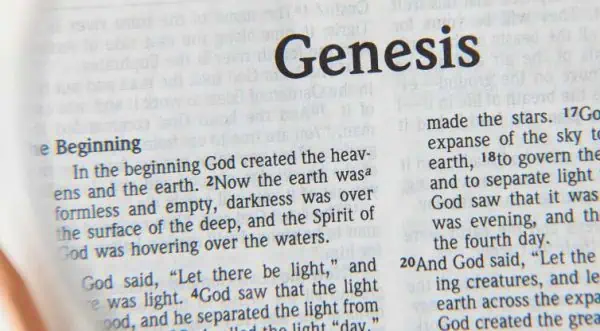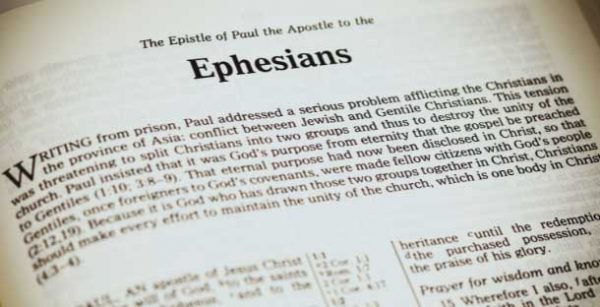
Hello, spiritual seekers and scholars of sacred texts! Whether you’re on a journey of faith, a quest for knowledge, or simply curious about the foundational texts that have shaped billions of lives around the world, you’re in the right place. Determining the “most important” book of the Bible is subjective because each book serves a different purpose and speaks to various aspects of faith, history, morality, and the human experience. The Bible is a unified work that collectively provides a comprehensive understanding of Christian teachings and beliefs.
We’re going on an exploration of the Most Important Books in the Bible, delving into the depth and diversity of this ancient, complex, and profoundly influential collection. From the poetic wisdom of Psalms to the prophetic visions of Revelation, the Bible is a treasure trove of spiritual guidance, historical insight, and moral teachings. So, whether you’re a devout reader or a newcomer to biblical studies, let’s open the pages of this sacred text together and discover the books that have resonated most deeply with believers through the ages, offering light, wisdom, and comfort to countless generations.
15 Most Important Books In The Bible
Each book of the Bible adds to the tapestry of messages, stories, and lessons that speak to the human condition and the nature of God. Therefore, while some books seem more foundational or practical than others, each contributes to the overall narrative and is considered important in its own right.
However, some books are frequently cited for their influence, historical significance, and depth of message. Here are 15 important books in the Bible, in no particular order, each significant for different reasons:
Old Testament:
- Genesis.
- Exodus.
- Psalm.
- Isaiahs.
- Job.
New Testament:
- Matthew.
- Mark.
- Luke.
- John.
- Acts of the Apostles.
- Romans.
- 1 Corinthians.
- Galatians.
- Ephesians.
- Revelation.
1. The Book of Genesis
The Book of Genesis is the first book in the Hebrew and Christian Old Testaments. The name comes from the Greek word “genesis,” which means “origin” or “beginning,” and it serves as an introduction to the rest of the Bible.

Genesis traditionally has two main parts:
Primeval History (Chapters 1-11): This part includes the creation of the world, Adam and Eve, Cain and Abel, Noah’s Ark and the Flood, and the Tower of Babel. These chapters describe the early history of humanity and introduce key themes like creation, sin, and God’s judgment.
Patriarchal Narratives (Chapters 12-50): This section focuses on the lives of the Patriarchs—Abraham, Isaac, Jacob, and Joseph. It traces their relationships with God, their families, and the wider world. This part introduces the concept of covenant, as God promises land and descendants to Abraham and his offspring.
Theological Themes
Creation and Origin: Genesis describes the creation of the universe and life, providing a framework for understanding human existence and the world.
Covenant: The concept of a covenant, or divine promise, is central to the story. God makes covenants with Noah, Abraham, and his descendants, binding Himself to humanity in a special relationship.
Sin and Morality: From Adam and Eve’s disobedience to the fratricide of Cain and Abel, Genesis delves into the complexities of human behavior, morality, and the consequences of sin.
Providence and Suffering: The lives of the Patriarchs are filled with trials and tribulations, but they also display God’s providence and the promise of redemption.
Literary Qualities
Narrative Complexity: Genesis is a mix of various literary forms, including myth, legend, genealogy, and historical story. This rich tapestry of storytelling has made it one of the most analyzed books in literary history.
Symbolism: Many elements in Genesis are symbolic. For instance, the Garden of Eden can be seen as a symbol of innocence, while the serpent represents temptation and deceit.
Cultural and Historical Impact
Foundation for Abrahamic Religions: Genesis is a foundational text for Judaism, Christianity, and Islam.
Legal and Ethical Influence: The book has had a strong impact on Western legal and ethical systems, particularly in shaping views on property, justice, and social order.
Cultural References: Stories from Genesis, such as Adam and Eve or Noah’s Ark, have transcended religious boundaries and have become part of global cultural heritage.
Significance: Describes the creation of the world and the origins of humanity; establishes key themes like sin, covenant, and redemption.
2. Book of Exodus
The Book of Exodus is the second book in both the Hebrew Bible and the Christian Old Testament. It follows Genesis and precedes Leviticus, serving as a crucial narrative in the Torah or Pentateuch. The book mainly focuses on the Israelites’ liberation from slavery in Egypt and their journey toward the Promised Land under the leadership of Moses.

The Book of Exodus has two main parts:
Liberation from Egypt (Chapters 1-18): This section narrates the Israelites’ enslavement in Egypt, the birth and early life of Moses, the Ten Plagues, the Passover, and the exodus itself. It culminates in the miraculous crossing of the Red Sea and the Israelites’ journey to Mount Sinai.
Sinai and the Covenant (Chapters 19-40): This portion details the Israelites’ time at Mount Sinai, where Moses received the Ten Commandments and other laws. The Israelites covenant with God and constructed the Tabernacle, a portable sanctuary for the Ark of the Covenant.
Theological Themes
Liberation and Redemption: One of the central messages is God’s power to liberate the oppressed. The liberation of the Israelites serves as a paradigm for spiritual redemption in Jewish and Christian theology.
Covenant and Law: The Ten Commandments and other laws received at Sinai form the basis of Judeo-Christian ethical and moral codes. The covenant establishes a special relationship between God and the Israelites.
Divine Providence: Throughout the book, God’s presence and guidance are evident, whether as a burning bush, a pillar of cloud and fire, or the parting of the Red Sea.
Idolatry and Apostasy: The book also focuses on human failings, exemplified by the story of the Golden Calf, where the Israelites engage in idol worship even after witnessing God’s miracles.
Literary Qualities
Narrative Drive: The book is rich in drama and narrative tension, featuring miracles, confrontations, and ethical dilemmas that have made it a compelling story for millennia.
Symbolism: Elements like the Passover lamb, manna from heaven, and the Ark of the Covenant are laden with symbolic meaning that has been explored in later Jewish and Christian writings.
Cultural and Historical Impact
Foundation of Jewish Identity: The Exodus story is central to Jewish identity and is commemorated annually during the festival of Passover.
Legal and Social Influence: The laws and ethical guidelines set down in Exodus have profoundly influenced Western legal systems and social norms.
Liberation Theology: In modern times, the themes of liberation and social justice have been adopted by various movements, most notably in liberation theology, which views the Exodus as a metaphor for spiritual and social liberation.
Cultural References: The Exodus narrative has penetrated beyond religious texts and has been represented in various art forms, including music, painting, and film.
Significance: Chronicles the Israelites’ escape from Egypt and the giving of the Ten Commandments serves as a foundational text for Jewish identity and law.
3. Psalms
The Book of Psalms is a collection of religious songs, prayers, and poems in the Hebrew Bible and the Christian Old Testament. Comprising 150 chapters or “psalms,” it serves as a key liturgical and devotional text for both Jewish and Christian traditions. Psalms is unique among biblical books for its focus on emotional expression and personal relationship with the divine.

The Psalms are traditionally divided into five books, reflecting its five-part structure:
- Book I (Psalms 1–41).
- Book II (Psalms 42–72).
- Book III (Psalms 73–89).
- Book IV (Psalms 90–106).
- Book V (Psalms 107–150).
Each section contains a range of psalms, including hymns of praise, laments, thanksgiving psalms, or wisdom literature. They address themes of sorrow, joy, worship, lamentation, blessings, curses, and more.
Significance: A collection of religious songs, prayers, and poems that express a wide range of human emotions and experiences; frequently cited in Jewish and Christian liturgies.
4. Isaiah
The Book of Isaiah is among the most important prophetic books in the Hebrew and Christian Old Testaments. Traditionally attributed to the prophet Isaiah, who lived in the 8th century BCE, the book is a complex compilation that spans several historical periods and covers many themes.

The book is divided into two or three main sections, depending on the scholarly perspective:
First Isaiah (Chapters 1–39): Generally considered the words of the historical Isaiah, these chapters are set in the context of the Assyrian threat to Israel and Judah. They contain a mix of oracles, prophecies, and historical narratives.
Second Isaiah (Chapters 40–55): These chapters are dated to the Babylonian exile and focus on themes of comfort, hope, and the promise of return to Jerusalem.
Third Isaiah (Chapters 56–66): These chapters are thought to come from the period after the exile and address the challenges of rebuilding and re-establishing religious practices in Jerusalem.
Symbolism: The book is rich in symbolic language and imagery, from the “Immanuel” prophecy to the vision of the “new heavens and a new earth.”
Significance: Addresses the themes of justice, morality, and the coming of a Messiah; important for its poetic language and prophetic visions.
5. Book of Job
The Book of Job is one of the most enduring and profound texts of the Hebrew Bible and Christian Old Testament. Classified as one of the Wisdom Books, it wrestles with existential questions concerning suffering, divine justice, and human understanding of God. The text is set as a poetic drama framed by prose narratives, making it unique in structure and style.

The Book of Job has three main sections:
Prologue (Chapters 1–2): In the prose introduction, Job, a wealthy and upright man, is subjected to severe trials as part of a heavenly wager between God and Satan (“the Accuser”). He loses his wealth, children, and health but does not curse God.
Dialogues and Monologues (Chapters 3–41): This poetic section consists of dialogues between Job and his friends—Eliphaz, Bildad, and Zophar—who insist that his suffering must be a punishment for sin. Job vehemently rejects this, and the dialogues morph into a series of monologues, including speeches from a younger observer named Elihu and from God Himself.
Epilogue (Chapter 42): The prose conclusion describes Job’s restoration to prosperity after he humbly accepts the limitations of his understanding before the divine mystery.
One of the book’s main concerns is theodicy: why do good people suffer if God is just and all-powerful? The book doesn’t offer easy answers but broadens the discourse on divine justice and human suffering. The Book of Job is studied not just for its religious significance but also for its existential themes, making it relevant across diverse intellectual discussions.
Significance: Explores why bad things happen to good people; an essential text in discussions of theodicy and human suffering.
6. Matthew
The Gospel According to Matthew is the first book in the New Testament of the Christian Bible. It is one of the four canonical Gospels, alongside Mark, Luke, and John. Written primarily for a Jewish audience, the book seeks to present Jesus as the prophesied Messiah and the fulfillment of Old Testament scriptures.

The Gospel of Matthew can be broadly categorized into narrative and discourse sections, interwoven to provide a holistic portrayal of Jesus’ life, ministry, death, and resurrection. Here are some key elements:
Infancy Narratives (Chapters 1–2): Matthew begins with the genealogy of Jesus and accounts of His birth, emphasizing His Davidic lineage and miraculous conception.
Ministry and Teachings (Chapters 3–18): This section includes the baptism and temptation of Jesus, His teachings (like the Sermon on the Mount), miracles, and interactions with various groups, including Pharisees, disciples, and the crowds.
Journey to Jerusalem and Passion Week (Chapters 19–28): This includes Jesus’ journey to Jerusalem, His final teachings, the Last Supper, betrayal, crucifixion, and resurrection.
Matthew frequently cites Old Testament prophecies to show that Jesus is the long-awaited Messiah. By portraying Jesus as a lawgiver and teacher, Matthew draws parallels between Jesus and Moses, another key figure in Jewish history. The teachings of Jesus in Matthew, especially in the Sermon on the Mount, have been influential in discussions on social justice, ethics, and morality.
Significance: One of the four Gospels that offer an account of the life, teachings, and resurrection of Jesus contains the Sermon on the Mount.
7. Mark
The Gospel of Mark is one of the four canonical Gospels in the New Testament and is considered the earliest, traditionally dated around AD 65-70. This Gospel is characterized by its concise narrative and a focus on action, encapsulating the ministry, crucifixion, and resurrection of Jesus Christ. It is a foundational text for understanding the Christian faith and has been immensely influential throughout history.

The Gospel of Mark has several key parts:
Beginning of Jesus’ Ministry (Chapters 1–3): Mark’s Gospel jumps quickly into the narrative, starting with the baptism of Jesus and his early ministry. It skips nativity accounts and emphasizes Jesus’ divine authority demonstrated through exorcisms, healings, and miracles.
Teachings and Miracles (Chapters 4–8): This part features some of Jesus’ parables and miracles, as well as conflicts with religious leaders, presented in a series of short episodes.
Journey to Jerusalem (Chapters 9–10): This section includes Jesus’ transfiguration and further teachings on discipleship, as well as his final journey to Jerusalem.
Passion and Resurrection (Chapters 11–16): The climax and conclusion of the Gospel focus on the events leading up to Jesus’ crucifixion and his resurrection, which is narrated concisely.
Mark uses the word “immediately,” emphasizing the urgency of Jesus’ mission and the impending arrival of the Kingdom of God. While Mark focuses on Jesus’ human emotions and limitations, it also presents him as the divine Son of God, balancing the two natures in its narrative.
Mark’s Gospel has a central role in the liturgical practices of many Christian denominations, particularly in the liturgical year, where the readings are divided by Gospel authors. The Gospel’s themes of service, sacrifice, and the Kingdom of God have profoundly influenced Christian ethics and theology.
Significance: The earliest of the four Gospels focuses on the miracles and actions of Jesus and presents a more human portrayal of the Christ figure.
8. Luke
The Gospel of Luke is the third book of the New Testament and is one of the four canonical Gospels. Traditionally attributed to Luke, the physician and companion of the Apostle Paul, the book offers a detailed, orderly, and compassionate account of the life and teachings of Jesus. Luke is unique among the Gospels in its focus on social justice, the role of women, and the universality of Jesus’ message.

The Gospel has several key sections:
Infancy and Preparation (Chapters 1–2): Luke begins with the birth narratives of John the Baptist and Jesus, providing the most detailed account of the nativity among the Gospels.
Early Ministry in Galilee (Chapters 3–9): This section includes the baptism and temptation of Jesus, followed by his early teachings, miracles, and interactions in the region of Galilee.
Journey to Jerusalem (Chapters 9–19): Unlike other Gospels, Luke focuses on Jesus’ journey towards Jerusalem, where he continues his teachings and prepares his disciples for what lies ahead.
The Passion and Resurrection (Chapters 20–24): This segment encompasses Jesus’ last days, his crucifixion, and his resurrection, detailed with Luke’s characteristic emphasis on the fulfillment of Scripture and divine plan.
Luke’s Gospel emphasizes that Jesus’ message is for everyone, including Gentiles, women, and social outcasts. Luke pays more attention than any other Gospel to the roles and perspectives of women, including characters like Mary and Elizabeth and the women who supported Jesus’ ministry. It emphasizes the work of the Holy Spirit in both Jesus’ ministry and the early church, serving as a natural prelude to his sequel, the Book of Acts.
Significance: Offers a detailed historical account of Jesus’ life and is the only Gospel with a sequel (Acts), which describes the early Christian community.
9. John
The Gospel of John stands distinct from the New Testament’s canonical Gospels. Traditionally attributed to John the Apostle, this Gospel offers a unique, theological portrait of Jesus, focusing on his divine nature and identity as the Word made flesh. Unlike the Synoptic Gospels (Matthew, Mark, Luke), John emphasizes less on narrative details and more on spiritual teachings and symbolic meanings.

The Gospel has several major sections:
Prologue (Chapter 1): John opens with a poetic prologue, introducing Jesus as God’s Word (Logos) who became flesh to dwell among humanity.
Public Ministry (Chapters 2–12): This section details Jesus’ public miracles, referred to as ‘signs,’ and extensive discourses that reveal his divine identity and mission.
Farewell Discourses and Passion (Chapters 13–19): The Gospel contains extended teachings by Jesus during the Last Supper, followed by his arrest, trial, crucifixion, and burial.
Resurrection and Epilogue (Chapters 20–21): The Gospel concludes with accounts of Jesus’ resurrection appearances and a final epilogue that affirms the Gospel’s purpose and authorship.
John’s Gospel centers on Jesus as the incarnate Word of God, emphasizing phrases like “I am the way, the truth, and the life” to stress Jesus’ divine attributes. The miracles in John serve as ‘signs’ pointing to Jesus’ divine identity and are meant to inspire belief. John uses symbolism and metaphor extensively, such as light and darkness, water and spirit, and shepherd and sheep.
Significance: Provides a unique, theological perspective on Jesus’ life and mission, introducing the concept of Jesus as the “Word” and the “Light.”
10. Acts of the Apostles
The Acts of the Apostles, commonly called Acts, is the fifth book of the New Testament. It is a sequel to the Gospel of Luke and is traditionally attributed to the same author, Luke the Physician. Acts chronicles the early history of the Christian church, detailing the spread of Christianity from Jerusalem to the ends of the known world at that time.

The book has two segments:
The Jerusalem Church (Chapters 1–12): This part starts with the Ascension of Jesus and the coming of the Holy Spirit on Pentecost. It then focuses on the Jerusalem church led by the Apostle Peter and other disciples. The first half ends with the transition from Peter to Paul as the central figure.
Paul’s Missionary Journeys (Chapters 13–28): This section recounts Paul’s various missionary travels, his work establishing Christian communities, and his ultimate journey to Rome, where he preached the Gospel to the heart of the Roman Empire.
Acts frequently mention the role of the Holy Spirit in empowering the early Christians for their mission and guiding the expansion of the Church. Like the Gospel of Luke, Acts emphasizes that Christianity is a faith for all people, not just the Jews. The outreach to Gentiles and various ethnic groups symbolizes this universal mission.
Significance: Chronicles the establishment and spread of the early Christian church, including the conversion and missionary journeys of Paul.
11. Romans
The Epistle to the Romans, referred to simply as Romans, is the sixth book in the New Testament and is considered one of the Apostle Paul’s most important and influential letters. Written to the Christian community in Rome around 55–57 AD, Romans provides a comprehensive outline of Pauline theology and has been pivotal in shaping Christian doctrine and practice through the centuries.

Romans can be divided into several sections, each with a specific focus:
Introduction and Theme (Chapters 1:1–17): Paul introduces himself and outlines the central theme of the Gospel—justification by faith.
Human Condition and Justification (Chapters 1:18–5:21): Paul discusses the fallen state of humanity and the means of justification through faith in Jesus Christ.
Sanctification and Christian Living (Chapters 6–8): Paul explores how Christians should live, emphasizing the role of the Holy Spirit in sanctification.
God’s Plan for Israel (Chapters 9–11): Paul tackles the complex issue of Israel’s place in God’s redemptive plan, emphasizing that God has not rejected His people.
Ethical Exhortations (Chapters 12–15): Practical teachings on how the theological principles laid out earlier should be applied in the life of the Christian community.
Conclusion (Chapter 16): Paul ends with personal greetings, acknowledgments, and a doxology.
One of Romans’ key contributions is its explication of justification by faith alone, apart from works of the law, as the means of receiving God’s grace. Paul examines the Torah (Jewish law) and its inability to bring about salvation, which can only come through faith in Christ.
Significance: A Pauline epistle outlines the doctrine of justification by faith and discusses the relationship between law and grace.
12. 1 Corinthians
The First Epistle to the Corinthians, commonly referred to as 1 Corinthians, is one of the Apostle Paul’s most well-known and frequently cited letters. It was written to address various moral, theological, and practical issues affecting the Christian community in Corinth, a bustling port city in ancient Greece. The letter provides valuable insights into the early Christian church’s struggles with unity, morality, and doctrinal integrity.

1 Corinthians has several sections that deal with specific issues:
Introduction (Chapter 1:1–9): Paul introduces himself and thanks the Corinthians, setting the tone for the letter.
Divisions in the Church (Chapters 1:10–4:21): Paul addresses the problem of factionalism within the Corinthian church and urges unity.
Moral and Ethical Issues (Chapters 5–7): This section covers various moral problems such as sexual immorality, lawsuits among believers, and questions about marriage.
Issues of Conscience and Freedom (Chapters 8–11): Paul discusses eating food offered to idols and the correct behavior during communal worship, including the Lord’s Supper.
Spiritual Gifts and the Church (Chapters 12–14): Paul talks about the diversity and interdependence of spiritual gifts within the body of Christ.
The Resurrection (Chapter 15): A lengthy discourse on the significance of Christ’s resurrection and the future resurrection of believers.
Closing Remarks and Farewell (Chapter 16): Final instructions, acknowledgments, and greetings.
Paul emphasizes the importance of unity within the church, critiquing factions and divisions that had arisen in Corinth. Paul explores the tension between Christian freedom and the responsibility not to cause others to stumble in their faith. The concept and function of spiritual gifts are examined, emphasizing their role in building up the church as the body of Christ.
Significance: Addresses various moral, theological, and practical issues affecting the Christian community in Corinth; contains the famous “love chapter” (1 Corinthians 13).
13. Galatians
The Epistle to the Galatians, commonly known as Galatians, is one of the Apostle Paul’s most impassioned and direct letters. It was written to the churches in the region of Galatia, likely between 48 and 55 AD. The letter tackles the pivotal issue of how Gentiles should be incorporated into the early Christian community, specifically addressing the controversy over whether they should observe Jewish customs like circumcision.

The structure of Galatians can be broadly categorized as follows:
Introduction and Personal Defense (Chapters 1–2): Paul starts by defending his apostolic authority and recounts his conversion and early interactions with the Jerusalem Apostles.
Theological Arguments (Chapters 3–4): Paul makes a robust argument for justification by faith alone, contrasting the law and the promise and using Abraham as a key example.
Ethical and Practical Instructions (Chapters 5–6): Paul concludes with ethical teachings, emphasizing life in the Spirit as opposed to under the law.
Galatians is foundational for the doctrine of justification by faith, emphasizing that righteousness comes through faith in Christ, not adherence to the Law. Paul contrasts living under the Law and the grace extended through God’s promise to Abraham fulfilled in Christ.
Significance: Focuses on Paul’s argument for justification by faith alone instead of works; tackles the issue of Jewish law in Christian theology.
14. Ephesians
The Epistle to the Ephesians, called Ephesians, is one of the New Testament letters attributed to the Apostle Paul. Written probably between 60–62 AD while Paul was under house arrest in Rome, the letter was sent to the Christian community in Ephesus. Still, it may also have been intended as a circular letter for other churches. Ephesians delves into themes of cosmic reconciliation and unity in Christ and the ethical implications of these grand theological concepts.

The letter has two main sections:
Theological Foundations (Chapters 1–3): This section opens with a hymn of praise for God’s blessings in Christ and then explores the implications of these blessings for both Jews and Gentiles.
Practical Instructions (Chapters 4–6): The latter half of the letter focuses on the ethical implications of the theological truths discussed in the first half, including appeals for unity, purity, and spiritual warfare.
One of the core themes of Ephesians is the unity of all things in Christ, breaking down divisions not just between Jews and Gentiles but all forms of earthly separations. Paul describes the reconciliatory work of Christ as something that has cosmic implications, uniting heavenly and earthly realms.
Significance: A Pauline letter that explores the nature and purpose of the Church as the Body of Christ addresses themes of unity and spiritual warfare.
15. Revelation
The Book of Revelation, also known as the Apocalypse of John, is the final book of the New Testament. It’s a work of apocalyptic literature that offers visions of the end times and the ultimate triumph of good over evil. Traditionally attributed to the Apostle John, the book was likely written around 95–96 AD during the reign of the Roman Emperor Domitian.

The Book of Revelation has a complex structure that combines letters, visions, and hymns:
Introduction (Chapter 1): A prologue introducing John and the book’s writing circumstances.
Letters to the Seven Churches (Chapters 2–3): Individual messages to seven specific churches in Asia Minor, each addressing their unique challenges and situations.
Visions of Heaven and the Future (Chapters 4–22): A series of increasingly complex and symbol-laden visions depicting heavenly scenes, various judgments, and the ultimate defeat of evil.
One of the central messages of Revelation is that God is in control of history and will ultimately bring about justice and renewal. The book portrays the cosmic struggle between good and evil, culminating in the ultimate defeat of Satan, the beast, and false prophets. The book calls for steadfast faith and endurance in the face of persecution and hardship, promising rewards for those who remain faithful.
Significance: A highly symbolic and apocalyptic text that describes the end times, significant for its influence on Christian eschatology and art.
5 Best Books In The Bible For Beginners
Some books within the Bible offer more accessible entry points for beginners, providing foundational teachings, compelling narratives, and profound insights into both spiritual and historical aspects. Here are five books in the Bible that are particularly well-suited for beginners:
- The Gospel of John
Why It’s Recommended: John’s Gospel is often recommended to beginners because it provides a clear and profound introduction to the life, teachings, miracles, death, and resurrection of Jesus Christ. John emphasizes the divinity of Jesus and is written in a way that appeals to both the heart and mind, making it an excellent starting point for understanding Christian faith and theology.
- The Book of Psalms
Why It’s Recommended: The Psalms offer a collection of prayers, poems, and hymns that express a wide range of human emotions—from despair to joy and from penitence to praise. This book is accessible because it deals with universal human experiences, making it easy for beginners to find relatable wisdom and comfort.
- The Book of Proverbs
Why It’s Recommended: Proverbs is filled with practical wisdom and moral guidelines that are as relevant today as they were when they were written. Its concise sayings cover various aspects of life, such as work, speech, and relationships, offering insights into how to live a good and virtuous life.
- The Gospel of Mark
Why It’s Recommended: Mark is the shortest of the four Gospels and is believed to be the first one written. It provides a fast-paced narrative of Jesus’ ministry, with an emphasis on His miraculous deeds and His teachings. Mark’s straightforward storytelling makes it an excellent choice for getting acquainted with the core of Jesus’ life and message.
- The Book of Genesis
Why It’s Recommended: Genesis, the first book of the Bible, covers the creation of the world, the beginnings of human civilization, and the foundational stories of the Hebrew people. It introduces key biblical themes and characters, such as Adam and Eve, Noah, Abraham, Isaac, and Jacob, offering essential background for understanding the rest of the Bible.
5 Best Book Of The Bible To Read During Hard Times
- The Book of Psalms
Why It’s Recommended: The Psalms are a collection of prayers, songs, and poems that express a wide range of human emotions, from deep despair to exuberant joy. Many psalms speak directly to the experience of suffering, providing words of comfort and reminders of God’s presence and steadfast love. Psalms like 23, 34, and 91, in particular, are often turned to for peace and reassurance.
- The Book of Job
Why It’s Recommended: Job deals with the themes of suffering, perseverance, and faith amidst trials. It tells the story of Job, a righteous man who faces severe losses and hardship. The book explores profound questions about why good people suffer and where God is in the midst of pain. Job’s eventual restoration offers hope for renewal and redemption.
- The Book of Isaiah
Why It’s Recommended: Isaiah contains prophecies that offer comfort and hope for the future, even as they address suffering and the need for repentance. Passages like Isaiah 40:31 (“But they who wait for the Lord shall renew their strength…”) and Isaiah 41:10 (“Fear not, for I am with you; be not dismayed, for I am your God; I will strengthen you, I will help you, I will uphold you with my righteous right hand.”) are particularly uplifting.
- The New Testament Epistles
Why It’s Recommended: The Epistles, particularly those written by the Apostle Paul, like Romans, 2 Corinthians, and Philippians, address themes of perseverance, hope, and joy in the midst of suffering. Paul’s reflections on his struggles and the encouragement he offers to early Christian communities can provide profound insights and comfort to those facing their trials.
- The Gospel of John
Why It’s Recommended: The Gospel of John emphasizes the love, compassion, and hope found in Jesus Christ. It provides a unique perspective on Jesus’ life, teachings, miracles, and promises of eternal life. John 14:27, where Jesus says, “Peace I leave with you; my peace I give you… Do not let your hearts be troubled and do not be afraid,” is especially comforting.
Best book of the Bible to read to get closer to God
Different books offer various insights into the nature of God, the human experience, morality, and the meaning of life. Here are some recommendations based on what you might be seeking:

Personal Relationship with God
Psalms: This book offers a range of human emotions in relationship with God, from great joy and gratitude to deep sorrow and lament. It’s an excellent book to read if you want to connect emotionally with God.
Understanding Jesus
Gospels (Matthew, Mark, Luke, John): If you want to understand the life and teachings of Jesus Christ, the Gospels are the primary source of information. Each Gospel provides a unique perspective on Jesus, but all focus on His life, teachings, death, and resurrection.
Understanding God’s Nature and Plan
Genesis: If you’re interested in understanding the nature of God as Creator and His plans for humanity, starting at the very beginning with Genesis can be enlightening.
Isaiah: This Old Testament book offers a rich understanding of God’s holiness, justice, and salvation.
Spiritual Guidance and Wisdom
Proverbs: If you’re seeking practical wisdom and guidance, Proverbs offers succinct advice on various aspects of life.
James: For a New Testament approach to practical Christian living, the Book of James offers actionable guidance.
Theological Depth
Romans: If you’re looking for a deep theological understanding of the Christian faith, Romans is a systematic presentation of the gospel and the nature of God’s righteousness and grace.
Spiritual Encouragement and Hope
Philippians: Known as the “Epistle of Joy,” this book offers encouragement and advice on finding joy and peace in a relationship with Christ.
Spiritual Struggle and Endurance
Job: If you’re dealing with suffering or the problem of evil, Job tackles these hard questions in a narrative format.
Revelation: For those interested in the ultimate triumph of God and hope for the future, Revelation provides a complex but ultimately optimistic vision.
Community and Church Life
Acts: This book describes the early years of the Christian church, offering models of community and inspiration for spreading the message of Jesus.
Prayer and Meditation
Ephesians: This epistle includes some of the most profound prayers and spiritual blessings in the New Testament, which can be incorporated into your spiritual practices.
Best books of the Bible to read for young adults
Reading the Bible can be an enriching experience for young adults, offering valuable insights into questions of identity, purpose, relationships, and morality that are at the forefront during this stage of life. Here are some books of the Bible that may be particularly meaningful for young adults:

Finding Purpose and Identity
Ecclesiastes: This book explores existential questions about the meaning of life, the pursuit of happiness, and the quest for significance—topics that resonate with young adults.
Relationship with God
Psalms: The Psalms offer a range of human emotions and experiences in relationship with God, which can be comforting and illuminating for young adults in various life circumstances.
Navigating Relationships
Proverbs: With its practical advice on friendships, work ethics, and relationships, Proverbs offers timeless wisdom for young adults.
1 Corinthians: Particularly, chapters 12-13, which talk about spiritual gifts and the nature of love, provide deep insights into maintaining healthy relationships within a community.
Understanding Jesus and His Teachings
Gospels (Matthew, Mark, Luke, John): Understanding the life, teachings, and impact of Jesus can provide a foundational understanding of the Christian faith.
Ethics and Living a Moral Life
James: This book is often seen as the Proverbs of the New Testament, providing practical guidance on living a virtuous life, including controlling one’s tongue and helping those in need.
Questions of Justice and Society
Amos: For those interested in social justice issues, Amos provides a powerful critique of social inequalities and calls for justice and righteousness.
Building Community
Acts of the Apostles: This book offers a narrative account of the early Christian community, offering insights into faith in action and the power of community.
Facing Doubt and Questions
Job: This book tackles the complex issue of why bad things happen to good people and can resonate with young adults grappling with similar questions.
Spiritual Growth
Philippians: Focused on joy during trials, Philippians can encourage young adults to find contentment in their relationship with God.
Understanding God’s Plan and Sovereignty
Romans: For a deep dive into theology, purpose, and the human condition, the book of Romans provides a comprehensive look at the Christian faith.
Future Hope and Inspiration
Revelation: For those who find themselves curious or concerned about the future, Revelation offers a message of ultimate hope and victory for those who trust in God.
Each of these books offers something unique to the young adult reader.
Books of the Bible in order
The books of the Bible are traditionally arranged differently in the Jewish, Protestant, and Catholic canons. Here, I’ll list the Protestant canon, the most widely used in the English-speaking world. The Catholic canon contains additional books, often called the Deuterocanonical books, not listed here.
Old Testament
- The Torah (Pentateuch).
- Genesis.
- Exodus.
- Leviticus.
- Numbers.
- Deuteronomy.
Historical Books
- Joshua.
- Judges.
- Ruth.
- 1 Samuel.
- 2 Samuel.
- 1 Kings.
- 2 Kings.
- 1 Chronicles.
- 2 Chronicles.
- Ezra.
- Nehemiah.
- Esther.
Wisdom Literature
- Job.
- Psalms.
- Proverbs.
- Ecclesiastes.
- Song of Solomon (Song of Songs).
Major Prophets
- Isaiah.
- Jeremiah.
- Lamentations.
- Ezekiel.
- Daniel.
Minor Prophets
- Hosea.
- Joel.
- Amos.
- Obadiah.
- Jonah.
- Micah.
- Nahum.
- Habakkuk.
- Zephaniah.
- Haggai.
- Zechariah.
- Malachi.
New Testament
Gospels
Matthew.
Mark.
Luke.
John.
History
Acts of the Apostles (Acts).
Pauline Epistles
Romans.
1 Corinthians.
2 Corinthians.
Galatians.
Ephesians.
Philippians.
Colossians.
1 Thessalonians.
2 Thessalonians.
1 Timothy.
2 Timothy.
Titus.
Philemon.
General Epistles
Hebrews.
James.
1 Peter.
2 Peter.
1 John.
2 John.
3 John.
Jude.
Apocalyptic Writings
Revelation.
Last Words
We hope this exploration has illuminated the richness and diversity of the Bible, offering insights into its most pivotal books and the profound impact they have had on individuals and societies across millennia. Whether you’re drawn to the poetic beauty of the Psalms, the profound teachings of Jesus in the Gospels, or the apocalyptic visions of Revelation, each book of the Bible offers a unique perspective on faith, humanity, and the divine.
As you close this chapter of your spiritual exploration, remember that the Bible’s pages are always open, inviting you to return, reflect, and find solace and wisdom in its verses. Until we meet again on another journey of discovery, may your exploration of sacred texts continue to enrich your spirit, challenge your understanding, and guide your path. Happy reading, and may your journey through the pages of the Bible be as enlightening as it is eternal.
Read more:
Theology Books About The Holy Spirit
Religion History Books About Moses
Religious Books On Mary Magdalene
Spiritual Meditation Books About Monks
Table of Contents
